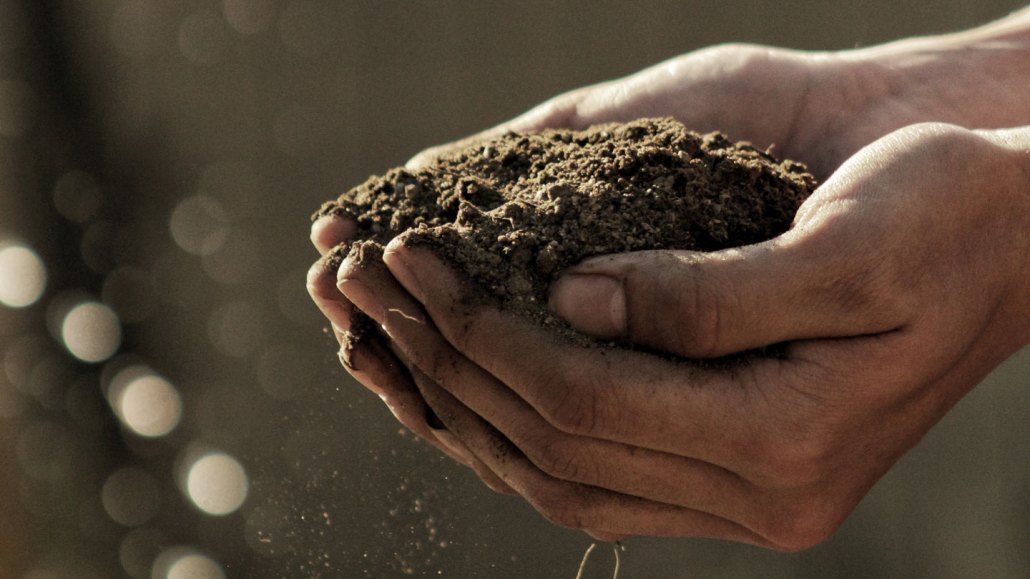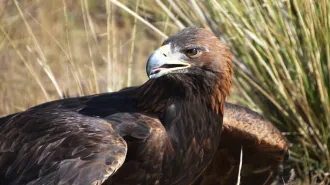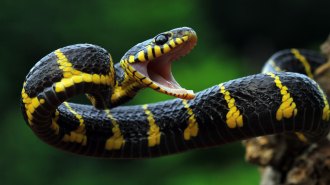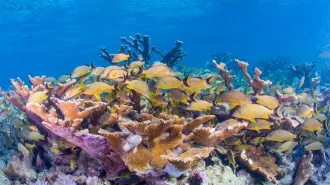
Scientists are beginning to unravel the relationships among soil microbes that enable some soils to hold on to carbon while others more readily lose theirs to the atmosphere.
Gabriel Jimenez/Unsplash.com
When it comes to storing carbon in the ground, fungi may be key.
Soils are a massive reservoir of carbon, holding about three times as much carbon as Earth’s atmosphere. The secret behind this carbon storage are microbes, such as bacteria and some fungi, which transform dead and decaying matter into carbon-rich soil.
But not all carbon compounds made by soil microbes are equal. Some can last for decades or even centuries in the soil, while others are quickly consumed by microbes and converted into carbon dioxide that’s lost to the atmosphere. Now, a study shows that fungi-rich soils grown in laboratory experiments released less carbon dioxide when heated than other soils.
The result suggests that fungi are essential for making soil that sequesters carbon in the earth, microecologist Luiz Domeignoz-Horta and colleagues report November 6 in ISME Communications.
Who is making soil matters, Domeignoz-Horta says.
The study comes as some scientists warn that climate change threatens to release more carbon out of the ground and into the atmosphere, further worsening global warming. Researchers have found that rising temperatures can lead to population booms in soil microbes, which quickly exhaust easily digestible carbon compounds. This forces the organisms to turn to older, more resilient carbon stores, converting carbon stored away long ago into carbon dioxide.
With the combined threat of rising temperatures and damage to soil microbe communities from intensive farming and disappearing forests, some computer models indicate that 40 percent less carbon will stick in the soil by 2100 than previous simulations have anticipated (SN: 9/22/16).
Sign up for our newsletter
We summarize the week's scientific breakthroughs every Thursday.
To see if scientists can coax soils to store more carbon, researchers need to understand what makes soil microbes tick. But that is no simple task. “Some say soil is the most complex matrix on the planet,” says Kirsten Hofmockel, an ecologist at the Pacific Northwest National Laboratory in Richland, Wash., who was not involved in the research.
To simplify matters, Domeignoz-Horta, of the University of Zurich, and colleagues grew their own dirt in the lab. The researchers separated fungi and bacteria from forest soil and grew five combinations of these communities in petri dishes, including some that were home only to bacteria or fungi. The researchers sustained the microbes on a diet of simple sugar and left them to churn out soil for four months. The team then heated the different soils to see how much carbon dioxide was produced.
Bacteria were the main drivers behind making soil, but fungi-rich soils produced less carbon dioxide when heated than soils made solely by bacteria, the researchers found. Why is still unclear. One possibility is that fungi could be producing enzymes — proteins that build or break up other molecules — that bacteria aren’t capable of making on their own, Domeignoz-Horta says. These fungi-derived compounds may provide bacteria with different building blocks with which to build soil, which may end up creating carbon compounds with a longer shelf life in soils.
What happens in lab-grown soil may not play out the same in the real world. But the new research is an important step in understanding how carbon is locked away long-term, Hofmockel says. This kind of information could one day help researchers develop techniques to ensure that more carbon stays in the ground for longer, which could help mitigate the amount of carbon dioxide in the atmosphere.
“If we can get carbon in the ground for five years, that’s a step in the right direction,” Hofmockel says. “But if we can have stable carbon in the soil for centuries or even millennia, that’s a solution.”







